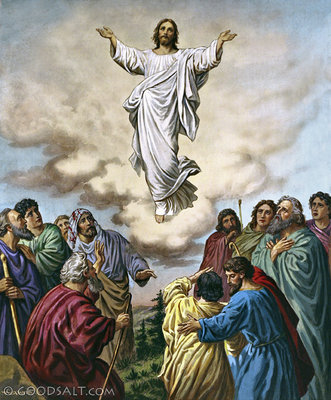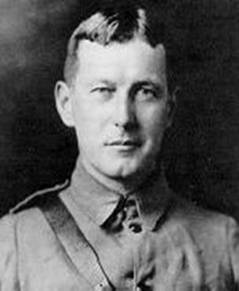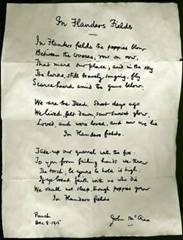JESUS CHRIST: THE WAY TO THE FATHER
(A biblical reflection on THE FIFTH SUNDAY OF EASTER (Year A], 18 May 2014)
Gospel Reading: John 14:1-12
First Reading: Acts 6:1-7; Psalms: Psalm 33:1-2,4-5,18-19; Second Reading: 1 Peter 2:4-9

The Scripture Text
“Let not your hearts be troubled; believe in God, believe also in Me. In My Father’s house are many rooms; if it were not so, would I have told you that I go to prepare a place for you, I will come again and will take you to Myself, that where I am you may be also. And you know the way where I am going. Thomas said to Him, “Lord, we do not know where you are going; how can we know the way?” Jesus said to him, “I am the way, and the truth, and the life; no one comes to the Father, but by Me. If you had known Me, you would have known My Father also; henceforth you know Him and have seen Him.”
Philip said to Him, “Lord, show us the Father, and we shall be satisfied.” Jesus said to Him, “Have I been with you so long, and yet you do not know Me, Philip? He who has seen Me has seen the Father; how can you say, ‘Show us the Father’? Do you not believe that I am in the Father and the Father in Me? The words that I say to you I do not speak on My own authority; but the Father who dwells in Me does His works. Believe Me that I am in the Father and the Father in Me; or else believe Me for the sake of the works of themselves.
“Truly, truly, I say to you, he who believes in Me will also do the works that I do; and greater works than these will He do, because I go to the Father. (John 14:1-12 RSV)

At the beginning of His public ministry, Jesus had delivered His “Sermon on the Mount” as the program of His Kingdom. At the end of His life He completed and perfected this instruction. There the scene was the horizon, the green hills of Galilee and the shores of its wonderful Sea. Here the sermon saw the closed room of the Last Supper. There the audience was filled with the masses from all different parts of the country, here the apostles were the only witnesses, who He loved with all His heart. He loved them till the end (see John 13:1), till the end of all possibilities, giving them His own flesh and blood, making them priests forever. And still He was not pleased.
When people bid farewell, they often reveal their affections more openly and more forcefully than they do during the years they live together. Love, the deepest power of the soul reveals man’s inmost nature. And there was certainly no moment when the apostles were more willing to accept than after the first Eucharist Celebration on earth. Already, humanly speaking, the time was opportune, since it was the custom among the Jews to join in conversation when the paschal meal was over. And in this sublime and fruitful discourse Jesus opened to His apostles (and to us) the very secrets of His heart.
Jesus had to leave, He had to die. That made the apostles sad. But He told them: “Do not be sad. I have to leave you, I have to die in order to establish the everlasting union between you and God. Thus be consoled by this union of life between you and the Father and Me completed by the Holy Spirit which I am going to accomplish by My death.” And then Jesus went on unfolding the essence of this divine union, the relation to Father and Holy Spirit, the glorious future for Himself and for His own. He spoke about the Holy Spirit, the Church and its members who must be one as Father and Son are one. He talked about future persecutions, the nature of the interior life of the faithful ones, the power of prayer. And above all: This sermon was steeped in the mournful tenderness with which Jesus spoke His departing words.

In today’s Gospel Jesus tells His apostles openly that He will leave them, that He will die. But they must not be sad. They shall rather be consoled because through His death Jesus is going to establish the communion of life between God and the apostles, between God and us. There is no heaven for us without Christ’s death. On the other hand, Christ died for all.
“In My Father’s house there are many dwelling places” (John 14:2 NAB). This implies: a dwelling place for many. In typical Jewish fashion Jesus also says that His blood was shed for many (Mark 14:24), which means it was shed for all.
Christ will take us for Himself so that we shall be where He is. Ever since He died for us, there is no separation any more between Him and us. Heaven is guaranteed for us. “Christ is the way to heaven, the way to the Father.” Jesus told Thomas. He is the only way to the Father, He is the only mediator. Nobody can reach the Father but through Jesus. Christ is the WAY because He is the TRUTH, revealing the Father to us in His word. The world would be dark without the Gospel. And as always, His TRUTH is not just theoretical knowledge, but life-giving knowledge. Christ is LIFE because He is the TRUTH.
Philip was not satisfied with Jesus’ remark. “Show us the Father and that will be enough for us,” he insisted (John 14:8 NAB). He wanted a theophany as it was granted to Moses (Exodus 33:18) or to Isaiah (Isaiah 6:1ff). But such a theophany is always the exception, not the rule! The normal way is that we see the Father in Christ’s teaching, or for the contemporaries of Christ: in Christ’s works and miracles. They should prove to everybody that Jesus and the Father are one (John 10:30). But of course, all the signs Christ performed were signs, not proofs for Christ’s divinity, for His oneness with the Father. There must be readiness to accept Christ in faith. Jesus told His disciples:“Believe Me that I am in the Father and the Father is in Me” (John 14:11).
If somebody does not have this faith no miracles will help. In the parable of the rich man and Lazarus, the rich man in hell asks Abraham to send Lazarus back to earth to his brothers and warn them to live a better life. Otherwise death would also take them by surprise as it happened to the rich man. Abraham answers: “They have Moses and the prophets” (Luke 16:29). The rich man gives back: “No, Father Abraham, if someone would only go to them from the dead, they would repent” (Luke 16:30). But Abraham insists: “If they do not listen to Moses and the prophets, they will not be convinced even if one should rise from the dead” (Luke 16:31). These brothers would have all kinds of excuses for not changing their lives. They would take the vision of the risen Lazarus as a fake, as an imagination. For a man of good will the Gospel is enough, Christ’s word in the Gospel is enough to see the Father. It is true: “The words I speak are not spoken of Myself, it is the Father who lives in Me accomplishing His works” (John 14:10 NAB). Christ is the way to the Father through His word of the Gospel. Do we take it seriously?

Since Christ is the way to the Father all roads lead to Christ, even there are people who do not know Him yet or do not know Him perfectly and exactly. Christ has a strong power of radiating and attracting people. Since Christ reveals the Father, He is not the completely different, the alien, the God high above us and remote from us. Rather, He is also close to us, since we can get to know Him: We can have trust and confidence in Him.
The union between God and us, however, will not only start in heaven, but will begin already here on earth. This future here on earth will bring a wonderful activities of the apostles, greater than the activities of Jesus. “The man who has faith in Me will do the works I do, and greater far than these” (John 14:12 NAB). What the apostles and what we after the apostles do here on earth is greater than the works of Jesus because they have greater external splendor. The activities of the apostles and those who follow them will be more visible.
The activities of the apostles will be greater because their activities will not be limited to Palestine any longer as was the work of Jesus according to the will of the Father. The activities of the apostles will be greater also because so far Jesus could help them only as pilgrims. Because of His death (“because I go to the Father” [John 14:12] will be the reason for greater activities of the apostles) and resurrection all the restrictions of the humanity of Christ are gone and He can foster the works of His disciples. Also in this sense He is the way to the Father for His disciples.
Prayer: Lord Jesus, I believe that You are the Way and the Truth and the Life, and no one comes to the Father, but by You. Lord, I want to see Your glory at the Holy Mass today – Your majesty, your beauty, and Your goodness. I know that I do not see it as I ought, so I ask You to open my eyes. Jesus, my Lord and my Savior, let me see You! Amen.
Jakarta, 17 May 2014
A Christian Pilgrim







 In Flanders fields the poppies blow
In Flanders fields the poppies blow











